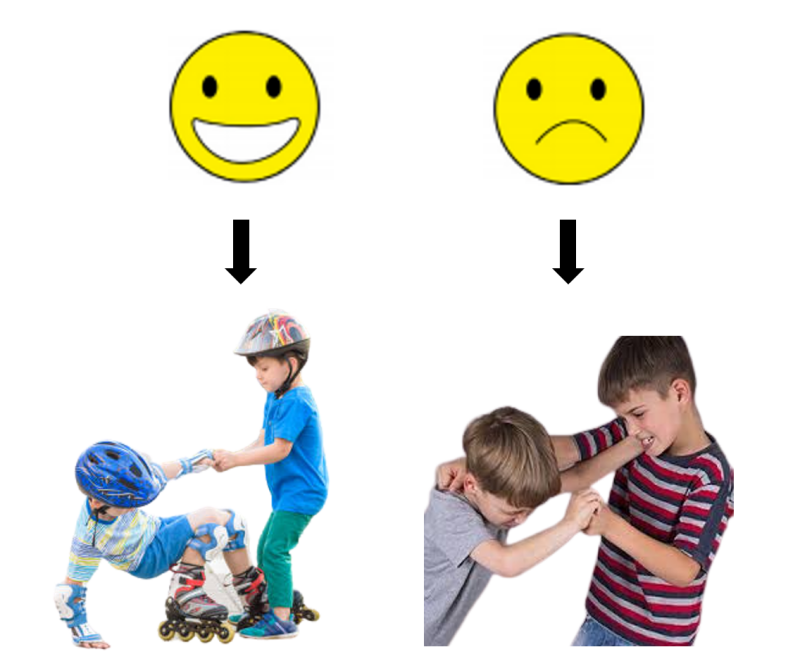My research questions include:

The development of sociomoral evaluation
How do young humans make sociomoral evaluations based on their observation of others' social interactions? What factors are related to their sociomoral evaluations? To address the above questions, I have joined the Manybabies4 project, a large-scale, closely coordinated, multi-site replication study of infants’ preferences for prosocial characters (Hamlin et al., 2007). Since 2020, I have been leading one spin-off project of ManyBabies4 with Kelsey Lucca, Hilal Sen, Francis Yuen, and Kiley Hamlin. This spin-off project aims to examine the sources of individual differences in infants’ sociomoral evaluations across cultures, such as parental moral language and parental justice sensitivity (see our OSF pre-registration). We have collected data on 1029 infants in cooperation with 37 laboratories across 18 countries. We are currently finalizing the open dataset.
Example Publications
Lucca, K.*, Yuen, F.*, Wang, Y., Alessandroni, N., ... & Hamlin, J., K. (2024). Infants’ social evaluation of helpers and hinderers: A large-scale, multi-lab, coordinated replication study. Developmental Science. 28(1), e13581. [accessible here] (* indicates equal contribution)
Children's selective responses toward prosocial and antisocial others
How do children respond differently toward prosocial and antisocial others? Previous studies found that children are less likely to help and more likely to punish antisocial others than prosocial others. I extended previous findings and examined children's selective empathy toward antisocial and prosocial others. I focused on three components of empathy: emotional sharing (e.g., feeling sad when seeing others feeling sad), perspective taking (i.e., understanding others’ feelings), and empathic concern (i.e., concern about sufferers, including the motivation to alleviate their pain).
Example Publications
Wang, Y., Zhou, W., Zhu, J., & Su, Y. (2024). Schadenfreude or empathy? Children's emotional responses to the physical pain and pleasure of prosocial and antisocial others. Journal of Experimental Child Psychology, 245, 105974. [accessible here]
Wang, Y., Harris, P. L., Pei, M., & Su, Y. (2022). Do bad people deserve empathy? Selective empathy based on targets’ moral characteristics. Affective Science. [accessible here]


Social cognitive and emotional correlates of moral behaviors
What social cognitive and emotional abilities are related to children's moral behaviors? Can children's prosocial behaviors and antisocial behaviors be predicted by their abilities, such as theory of mind (i.e., understanding others' mental states) and emotional empathy (i.e., sharing others' feelings)?
Example Publications
Wang, Y., Shang, S., Xie, W., Hong, S., Liu, Z., & Su, Y. (2022). The relation between aggression and theory of mind in children: A meta-analysis. Developmental Science, e13310. [accessible here]
Wang, Y., Hong, S., Pei, M., Wang, X., & Su, Y. (2021). Emotion matters in early polite lies: Preschoolers’ polite lie-telling in relation to cognitive and emotion-related abilities. Social Development, 1–17. [accessible here]
Genetic foundations of morality
What genes are related to moral behavior and moral judgment? How do genes interact with the environment to influence moral behavior and moral judgment? I proposed the “gene-hormone-brain-psychology-behavior” model to explain the pathways from genetic variation to moral performance.
Example Publications
Wang, Y., & Su, Y. (2022). Genetic contributions to East Asian morality. In R. Nichols (Ed.), The Routledge international handbook on morality, emotion, and cognition in China (pp. 80-100). Routledge. [accessible here]


How can we conduct infant studies online?
The reproducibility of infant studies has long been a topic of discussion, highlighting the need for larger-scale research. I am interested in validating various online methods to measure infants’ attention, expectation, and social responses, using platforms like Children Helping Science (Scott & Schulz, 2017) or Zoom. This work aims to open new possibilities for data sharing, procedural standardization, reproducibility, and analytic innovation in infant research.
For more information, see my symposium talk at SRCD 2025!
My skills include:
Programming: R, MATLAB, Python

Software: SPSS, EEGLab, FreeSurfer, Datavyu, E-prime, Psychopy, Pyhab

Create Your Own Website With Webador